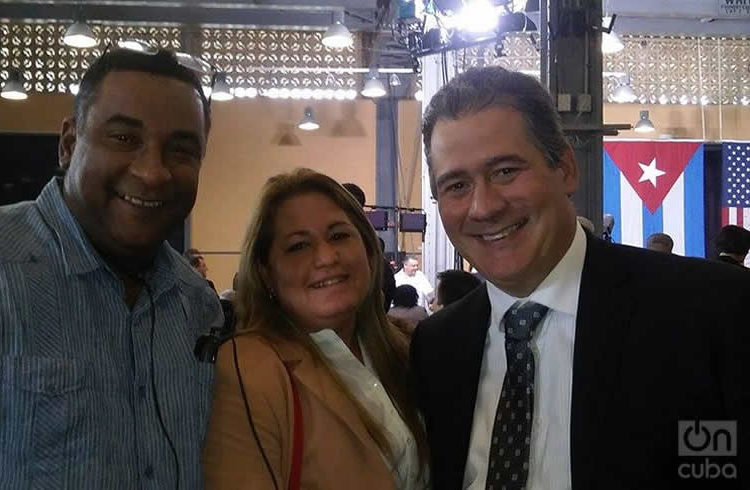This Wednesday more than 100 Cuban entrepreneurs sent a letter to Donald Trump urging him to maintain the policy of the Obama administration to increase economic relations with the island.
The letter, signed by these small Cuban entrepreneurs, argues that this social sector, already made up by half a million persons and their families, have benefitted from higher incomes than those obtained in the state-run sector and the possibility of attaining greater autonomy in their work.
“The reforms made by the U.S. government to allow an increase in trips, telecommunications services and banking have substantially helped to the extent that we try to make our businesses grow,” they affirm.
“As a successful businessman, we are sure that you understand the importance of the economic commitment between nations,” the signatories to the letter said to Trump.
This missive, in the midst of the uncertainty due to several of the next U.S. president’s statements against the policy advanced by Obama, again places this sector as an interlocutor capable of having an influence on White House decisions.
“The additional measures to increase trips, commerce and investment, including the work with Congress to lift the embargo, will benefit our enterprises, the Cuban people and U.S. national interests,” the Cuban entrepreneurs also point out to further on confirm to Trump that they expect “to take advantage of all the opportunities that his administration give the Cuban private sector and the Cuban economy as a whole.
The letter was promoted by Cuba Educational Travel, a U.S. company that organizes trips to the island and coordinates with the Washington Engage Cuba lobby group.
Concerns for the people
Collin Laverty, president of Cuba Educational Travel, affirmed that they cannot turn their backs on Cuban entrepreneurs at this crucial time, and added that the increase in trips and commerce with the United States has led to the demand for their products and services, and there’s no better way of backing them than through direct interaction with the U.S. people.
According to Laverty, withdrawing now would kill the dreams of hundreds of thousands of Cuban entrepreneurs, would affect the wellbeing of millions of Cuban families and would again demonstrate that the U.S. government is more concerned about politics than about the people.
Among those who backed the initiative with their signatures are owners of family restaurants, known as paladares, high-tech and design enterprises, car services and hairdressing salons, among others.
Carlos Cristóbal Márquez, owner of the San Cristóbal Restaurant, where President Obama dined during his visit to Havana and whose food was praised by the president, appears among the signatories.
Niuris Higuera, owner of the Atelier Restaurant, where First Lady Michelle Obama and other members of her family had lunch, also signed the letter. Questioned by OnCuba, Higuera commented: “For us this type of message is very important because the more we tell them [the U.S. government] that the private sector is real, that we are not departments of the Cuban State, but rather that we are here, that we are growing and that we give jobs to many persons, there will be less possibilities that the measures Obama has been taking are undone.”
Almost two years since 17D
The sending of the missive coincides with the holding this Wednesday of the fifth meeting of the U.S.-Cuba Bilateral Commission in Havana. According to what was previously announced, the meeting will make a balance of the results achieved up to now in this diplomatic mechanism, and future actions will be defined to advance in the improvement of relations, including high-level visits, new cooperation agreements, technical meetings and talks on issues of common interest.
Parallel to this, a small group of bipartite U.S. legislators plan to hold a press conference in Washington with the aim of urging Congress to lift their country’s economic embargo on Cuba. It was previewed that attending Cuban entrepreneurs would ask Trump to not reverse the rapprochement between the two nations.










